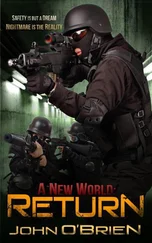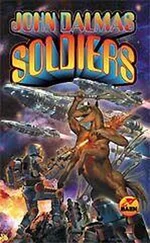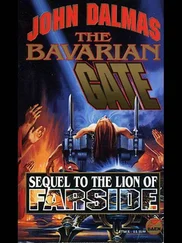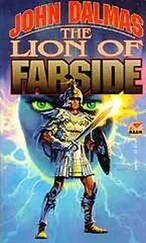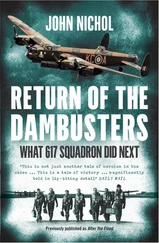John Dalmas - Return to Fanglith
Здесь есть возможность читать онлайн «John Dalmas - Return to Fanglith» весь текст электронной книги совершенно бесплатно (целиком полную версию без сокращений). В некоторых случаях можно слушать аудио, скачать через торрент в формате fb2 и присутствует краткое содержание. Жанр: Фэнтези, на английском языке. Описание произведения, (предисловие) а так же отзывы посетителей доступны на портале библиотеки ЛибКат.
- Название:Return to Fanglith
- Автор:
- Жанр:
- Год:неизвестен
- ISBN:нет данных
- Рейтинг книги:4 / 5. Голосов: 1
-
Избранное:Добавить в избранное
- Отзывы:
-
Ваша оценка:
- 80
- 1
- 2
- 3
- 4
- 5
Return to Fanglith: краткое содержание, описание и аннотация
Предлагаем к чтению аннотацию, описание, краткое содержание или предисловие (зависит от того, что написал сам автор книги «Return to Fanglith»). Если вы не нашли необходимую информацию о книге — напишите в комментариях, мы постараемся отыскать её.
Return to Fanglith — читать онлайн бесплатно полную книгу (весь текст) целиком
Ниже представлен текст книги, разбитый по страницам. Система сохранения места последней прочитанной страницы, позволяет с удобством читать онлайн бесплатно книгу «Return to Fanglith», без необходимости каждый раз заново искать на чём Вы остановились. Поставьте закладку, и сможете в любой момент перейти на страницу, на которой закончили чтение.
Интервал:
Закладка:
About then I noticed that some of the crew were starting to look a little nervous, and I asked one of them if something was wrong.
"Charybdis," he said.
"What is-Charybdis?"
He used a word that didn't mean anything to me, but his explanation, complete with hand motions (the Provencals are great for using their hands to help them talk), made it clear: Charybdis is a whirlpool. In the Strait of Messina. And it could, he told me, swallow a ship.
I asked the captain about that, and he nodded. "It could. But many ships go through there every year, and only now and then does the whirlpool take one of them. Perhaps when there is a storm out of the north, or the ship has a careless master." He shrugged. "Or maybe with someone on board whom God has decided to strike down-perhaps a heretic. Some say there is a monster in it that takes a ship when she is hungry. But there are more monsters told about than exist, and I do not believe there is one in the whirlpool."
He crossed himself though, after he said it.
When we passed through the strait, I kept watching for the whirlpool, but didn't see it. What I did see on both sides was rough, mountainous country without much forest, and to the southwest, on the Sicilian side, an incredible mountain in the distance. It was broad, climbing gradually up and up, with miles and miles of snow. The captain told me its name was Aetna.
It was starting to get dark when we landed in Reggio di Calabria, a town ruled by Normans. I was almost out of money, and the captain agreed to let me sleep on the ship that night. It brought the ship luck to have me aboard, he said; it would bring it still more to grant a boon to a holy man.
It took me a minute to realize that by holy man he meant me. And from what I understood of the concepts of holy, I felt a little embarrassed. I'd tricked him, and everyone else on board, and didn't feel good about it.
I had the ship almost to myself. The other passengers had left. The mate and another sailor sat on guard by the gangplank while two others, their relief, slept nearby on wool bales dragged up on deck. A lopsided moon shone down.
They'd dragged up more than enough bales for themselves, and as I lay down across a couple of extras, scratching and waiting for sleep, I thought about what I'd done. So I'd used trickery. It had been necessary; they'd never accept me for what I was. They wouldn't believe. Or if they did, they wouldn't understand. And if the word got around, I might get executed as a demon; that had almost happened at the Monastery of St. Stephen of Isere, my first time on Fanglith.
What I'd done on this ship had helped the people on it-saved them from being killed or enslaved by the pirates-while what I hoped to do would keep them from being enslaved by the Empire.
Because if the Glondis Empire lasted long enough, it would come to Fangiith someday and subjugate it.
And that uncovered the unasked questions that had had me in the glums off and on lately. Did I actually believe we could turn this planet into a rebel world? And if the Empire came to Fanglith, would the Fang-lithans be any worse off then they already were? Or might they actually be better off?
But enough of the old legend was obviously true that I could assume the rest was, too. The human population of Fanglith had started out mind-wiped and naked, without as much as a knife or even a memory-a few thousand political prisoners dumped here 18,000 years ago by the Mad Emperor, Karkzhuk. And with that miserable start, it was impressive that they'd advanced this far. There was no reason to think they wouldn't someday be truly civilized, but if the Glondis Empire took Fanglith over, they'd make a slave labor pool out of it.
Of course, the big question was whether we could accomplish anything here. What was needed was some kind of superman-someone out of an adventure thriller-not Larn Rostik kei Deroop.
I shook off the crud of self-devaluation and looked up at the stars. Evdash was up there somewhere, I thought to myself, and then I thought of Jenoor, killed by the Empire, and started deliberately to build up a good hate to toughen my mind for the job we had here. But working up a hate was just a dodge, and I knew it. It didn't change the way things were; it was just a way of not looking at them. I needed to get my attention out of myself, so I took out my communicator; I'd talk with Deneen.
I didn't use the remote. The guards would hear her voice, but that was the kind of thing they expected of me now. I was established as someone who communicated with the angels.
Deneen:
Moise was something else, and finding him could almost make me believe in fate. Virtually everything about us was new to him, including knowing what the stars really were, and the galaxy, and Fanglith itself. You'd never imagine how the Fanglithans had envisioned and explained their world and the universe. Yet he'd adjusted so quickly to us and to what we'd shown him, with so little confusion and not even a headache, that both Tarel and I were really impressed. Moise was not only very bright, he was very adaptable.
I wonder if mental adaptability might not be the key to maximum success in this universe.
You might think we'd have gotten bored, parked fifteen miles above the surface with "nothing much to do." Actually, we were as busy as we could be, including Moise, because after talking with him a while, I'd decided he'd make a good consultant, and perhaps a contact man on the surface. I wasn't sure about that yet.
So Tarel and I had taken turns questioning him- picking his brain-and educating him. Recording all of it, of course, then running it through linguistic analysis and taking turns using the learning program. We were expanding our knowledge of the language and of Fanglith both.
In turn, we educated him. Over the next Four days we described to him what the universe and galaxy were really like, gave him a course in the basic principles of technology, and let him know a little about ourselves. Not everything. But that we were refugees from a far world, and that we wanted to make a place for ourselves on Fanglith without attracting hostile attention from the people here.
We'd had to talk Provencal, of course-the only language we knew that he could understand. Fortunately, Moise was from a seaport called Genoa, where the language, Piedmontese, was pretty much like Provencal. He could understand us, and we understood him, without a lot of trouble. He told us he also spoke Hebrew, Aramaic, and quite a bit of Greek. And Arabic, the language of the Saracens. It had been important in Tarragona, the place where they'd lived before going to Genoa. The pirates had spoken Arabic, too. He'd learned quite a bit of Arabic poetry where he'd lived in Tarragona; he'd thought they were the best poems of all. And the poetry had built his Arabic vocabulary well above the street vocabulary of the children he'd played with.
I'd become aware on our first trip to Fangiith that there was a bad communication scene on this world, but now I began to realize how bad. Because all of those languages, plus a bunch of others, were spoken in just the region around the Mediterranean. Who knew how many different languages there might be on Fanglith? It seemed a safe bet that there were hundreds of them.
Because Arabic was important around much of the Mediterranean, it seemed to me that it might be useful to us. So between times, I had Moise say Arabic words into the recorder, discussing in Piedmontese what they meant. Then I'd load them into the computer. But for the time being we'd stick with Provencal/Piedmontese. Moise said we should be able to make ourselves understood with it, more or less, in Tuscany and Venice, which were important regions of Italy.
Moise was unusually well educated, I realized-even compared with most of the "nobility" of the time. But it was interesting how little he knew of geography-even the geography of the Mediterranean. He knew a lot about a lot of places and peoples, but a map he tried to sketch for us, in our first session, was so crude and incomplete that, comparing it with the one our ship had made, we couldn't figure out where it was supposed to be. And he had no idea where it was on our map.
Читать дальшеИнтервал:
Закладка:
Похожие книги на «Return to Fanglith»
Представляем Вашему вниманию похожие книги на «Return to Fanglith» списком для выбора. Мы отобрали схожую по названию и смыслу литературу в надежде предоставить читателям больше вариантов отыскать новые, интересные, ещё непрочитанные произведения.
Обсуждение, отзывы о книге «Return to Fanglith» и просто собственные мнения читателей. Оставьте ваши комментарии, напишите, что Вы думаете о произведении, его смысле или главных героях. Укажите что конкретно понравилось, а что нет, и почему Вы так считаете.

